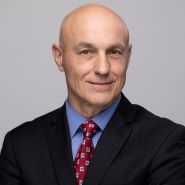Flashback: Domestic Infringement can be Compensated Based on Lost Foreign Profits
- July 2, 2018
- Article
Associated People
Fourteen years ago, while discussing 35 USC 271(f) and related court precedents, I wrote that “a patentee can rely on its U.S. patent to seek damages for sales outside the U.S.” See The Impact of U.S. Patents on International Business (Managing intellectual Property, Issue 144, Nov. 2004). The ability to recover damages to compensate for harm suffered by the patentee from foreign sales has been around for over 130 years. See S. Yelderman, Proximate vs. Geographic Limits on Patent Damages, IP Theory, Vol. 7, Issue 2, 2018, citing Ketchum Harvester Co. v. Johnson Harvester Co. (C.C.N.D.N.Y. 1881).
The Supreme Court recently held that the patent statutes (35 USC 284 and 271(f)(2)) “allow the patent owner to recover for lost foreign profits.” WesternGeco LLC v. Ion Geophysical Corp. Sup. Ct (2018). The blogosphere is going wild. Why all the fuss over something we already knew? Because in 2013 and 2015, the Court of Appeals for the Federal Circuit (CAFC) held otherwise. See Power Intergrations, Inc. v. Fairchild Semiconductor Int’l, Inc. (Fed. Cir. 2013) and Carnegie Mellon Univ. v. Marvell Tech. Gro., Ltd (Fed. Cir. 2015). In these cases, the CAFC applied a bright line rule against the recovery of any foreign losses that were caused by the domestic infringement relying on the presumption against the extraterritoriality effect of patent laws.
So, it’s a good thing I didn’t update my 2004 article in 2013 and 2015 because the CAFC’s rigid rule against lost foreign profits did not last. As Justice Thomas pointed out in WesternGeco, one should not “conflate legal injury with the damages arising from that injury.” The presumption against extraterritoriality applies to the legal injury, not necessarily to the damages to compensate for the harm resulting from the injury. Under the patent statute, specifically 35 USC 284, the patentee is entitled to “complete compensation” for the infringement. And since the infringement under 35 USC 271(f) is domestic, i.e., not extraterritorial, the “damages adequate to compensate for the infringement” can include lost foreign profits.
The above discussion is limited to damages to compensate for infringement under 35 USC 271(f), which defines a special type of infringement: supplying in or from the U.S. components of a patented invention under certain conditions. The bigger question is whether the holding of calculating damages based on foreign sales applies to more conventional infringements, such as those defined under 35 USC 271(a). For example, if the infringer makes the claimed devices in the United States, thus violating 35 USC 271(a), then sells the made-in-the-U.S. devices outside the U.S. such that the patent owner loses foreign profits, could the complete compensation for the infringement include such lost foreign profits? Some commentators answer in the affirmative (see e.g., Prof. Thomas Cotter of the University of Minnesota Law School), while others in the negative (see e.g., Prof. Timothy Holbrook, Emory University School of Law). As a practicing attorney not knowing what my clients will need in the future, I will reserve judgement.
In the meantime, I hereby update a different portion of my 2004 article, relating to exhaustion. Relying on clear CAFC precedent, the article stated that “patent rights … are not exhausted by products sold outside the U.S.” This statement is of course no longer correct since the Supreme Court has since favored international exhaustion last year in Impression Products, Inc. v. Lexmark International (Sup. Ct. 2017). And with the Supreme Court just announcing that it will review the Helsinn case regarding the on sale bar under the American Invents Act, I may have to update another article in 2019.
The overall take-away lesson here is clear: if one wants to write about patent law, one may want to wait for Supreme Court decisions.
Recent Publications
5 IP Rules to Know to Protect Your Business in the United States (article in French)
Coaching INPI Newsletter










 Counseling & Strategic Advice
Counseling & Strategic Advice IP Transactions
IP Transactions Litigation
Litigation PTAB Proceedings
PTAB Proceedings Start-Up
Start-Up Technology Transfer
Technology Transfer Trademark & Designs
Trademark & Designs U.S. Patent Procurement (Application Drafting & Prosecution)
U.S. Patent Procurement (Application Drafting & Prosecution)








